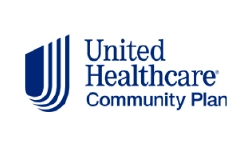First
Medical
Associates
Trusted Primary Care Walk-in Clinic at 9 locations in Maryland
Call: (301) 284-3181
Services
Primary Care
First Medical Associates professionals focus on providing superior medical care in a respectful, patient-centered environment. Our centers partner with hundreds of the most medically distinguished physician specialists.
Walk-in Services
At First Medical Associates, our Walk-In Clinic delivers fast, quality care for non-emergency issues. With no appointment needed, our expert team provides prompt treatment for sudden illnesses and minor injuries, helping you get back to your routine quickly.
Diabetes
Diabetes is a severe chronic disease that requires careful daily management. Click here to learn more about how you can stay healthy with diabetes.
meet our providers




find a Location near you
First Medical Associates
806 W Diamond Ave #110,
Gaithersburg, MD 20878
First Medical Associates
12800 Middlebrook Road Suite 400, Germantown, MD 20874
First Medical Associates
9601 Blackwell Road Suite 210,
Rockville, MD 20850
First Medical Associates
14300 Gallant Fox Ln #110
Bowie, MD 20715
First Medical Associates
Silver Spring, MD | 301-593-7792
9801 Georgia Ave #229,
Silver Spring, MD 20902
First Medical Associates
8100 Sandpiper Cir STE 308,
Baltimore, MD 21236.
First Medical Associates
8600 Snowden River Pkwy STE 207,
Columbia, MD 21045
First Medical Associates
Frederick, MD | 301-284-3181
196 Thomas Johnson Dr STE 235,
Frederick, MD, 21702
First Medical Associates
Severna Park, MD | 301-515-2901
877 Baltimore Annapolis Boulevard, #112
Severna Park, MD 21146
We’re Available 24/7
Book your appointment by calling us at 301-284-3181 or simply fill out this form.
About Our Practice
Our goal is to deliver truly exceptional and highly personalized care, right in your neighborhood.
First Medical Associates’ Primary Care Centers are dynamic, modern practices delivering high-quality, individualized primary care in multiple convenient locations in Rockville, Germantown, Gaithersburg, Columbia, Bowie, Nottingham, Frederick, Severna Park, and Silver Spring, Maryland. We provide a comprehensive and collaborative approach to health care. Our best-in-class internists and primary care doctors are specialists in accurate diagnosis and treatment provided in a safe, compassionate, and friendly environment.

FAQ
Frequently asked questions
We accept most insurance providers. If you have specific questions regarding your coverage, please contact us for additional information.
What is a primary care physician?
PCPs are like coaches. They oversee your overall health and wellness, listening to your concerns, examining your symptoms, suggesting treatment plans, prescribing medications, and referring you to specialists when necessary.
Do I need a primary care physician?
Having a primary care physician is important. They can get to know you and your medical history. Building a long-term relationship with a PCP can help you manage your health better and lower your healthcare costs over your lifetime.
Here are some added benefits of having a primary care physician:
- Early detection and treatment of health problems
- Referrals to specialists when needed
- Access to preventive care, such as vaccinations and screenings
I rarely get sick, why do I need a primary care physician?
Even if you rarely get sick, it is still important to have a primary care physician. They can provide you with preventive care, such as vaccinations and screenings, and they can help you manage any chronic health conditions you may have. Routine checkups can also help to screen for diseases and conditions that you may not be aware of, and early detection is key to improved recovery chances. A PCP can also provide you with advice on how to stay healthy, such as eating a healthy diet and exercising regularly.
A primary care physician can also be a valuable resource if you do get sick. They can diagnose your illness, prescribe medication, and provide you with follow-up care. They can also refer you to specialists if needed.
What should I discuss with my primary care doctor?
Here are some things you should discuss with your primary care doctor:
Your overall health and well-being.
Any chronic health conditions you may have.
Your medical history.
Your family’s medical history.
Any medications you are taking.
Any allergies you have.
Any questions or concerns you have about your health.
It is also important to discuss your lifestyle with your primary care doctor. They can help you make healthy choices, such as eating a healthy diet and exercising regularly. They can also help you manage stress and get enough sleep.
Finally, it is important to discuss your preventive care with your primary care doctor. They can help you get vaccinations and screenings, such as mammograms and colonoscopies. They can also help you manage your blood pressure and cholesterol.
By discussing these things with your primary care doctor, you can help them provide you with the best possible care.
What is the difference between Family Medicine, Internal Medicine, and Primary Care?
Family medicine and internal medicine are both primary care specialties. Family medicine physicians provide care for patients of all ages, from birth to death. Internal medicine physicians provide care for adults 18 years or older.
The main difference between family medicine and internal medicine is that family medicine physicians are trained to provide care for children, while internal medicine physicians are not. Family medicine physicians also typically have a broader range of experience, as they are trained to provide care for a wide range of medical conditions.
Both family medicine and internal medicine physicians can provide preventive care, such as vaccinations and screenings. They can also diagnose and treat common illnesses and injuries. However, family medicine physicians may be more likely to refer patients to specialists, while internal medicine physicians may be more likely to provide care for complex medical conditions.
Ultimately, the best way to choose a primary care physician is to find one who is a good fit for you and your needs. You should consider your age, health conditions, and lifestyle when making your decision.
What is the role of a physician assistant or nurse practitioner in the practice?
Physician assistants (PAs) and nurse practitioners (NPs) are both advanced practice providers (APPs) who work under the supervision of a physician. They are trained to provide a wide range of medical services, including diagnosing and treating illnesses, prescribing medications, and ordering and interpreting tests.
PAs and NPs are able to provide care for a wide range of patients, from newborns to adults. They are also able to provide preventive care, such as vaccinations and screenings.
PAs and NPs play an important role in the healthcare system. They help to reduce the workload of physicians and provide care to patients who may not otherwise have access to it.
Here are some of the specific roles of PAs and NPs in practice:
- Diagnosing and treating illnesses: PAs and NPs are trained to diagnose and treat a wide range of illnesses, including common colds, flu, allergies, and skin problems. They can also prescribe medications to treat these illnesses.
- Prescribing medications: PAs and NPs are able to prescribe medications to treat a wide range of illnesses. They can also prescribe medications to manage chronic conditions, such as high blood pressure and diabetes.
- Ordering and interpreting tests: PAs and NPs are able to order and interpret tests, such as blood tests, X-rays, and MRIs. They can also interpret the results of these tests and make recommendations to patients.
- Providing preventive care: PAs and NPs are able to provide preventive care, such as vaccinations and screenings. They can also provide advice on how to stay healthy, such as eating a healthy diet and exercising regularly.
- Educating patients: PAs and NPs are able to educate patients about their health and how to manage their health conditions. They can also provide information on healthy lifestyle choices, such as eating a healthy diet and exercising regularly.
resources
Recent articles
Why Choose First Medical Associates for Your Primary Care Needs in Maryland
As the vibrant fall season approaches, it’s the perfect time to focus on your health and well-being. At First Medical Associates, we are dedicated to providing high-quality primary care across all our locations in Maryland, including Bowie, Columbia, Gaithersburg,...
Understanding Eczema: From Causes to Treatment and Everything in Between
Eczema is a common skin condition that affects millions of people, leading to discomfort and distress. At First Medical Associates, we aim to help you understand eczema—its causes, symptoms, and effective treatments. Whether you visit our walk-in clinic in Rockville,...














